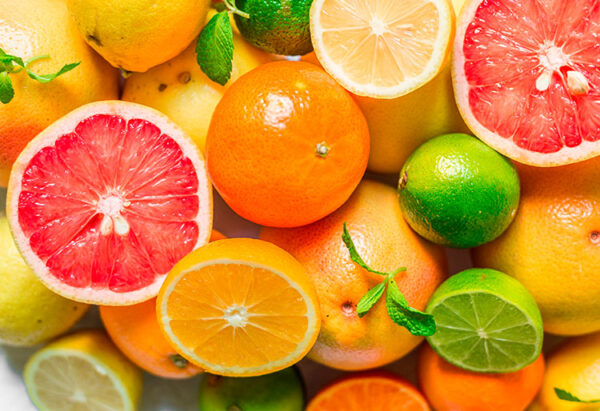Vitamin C and Coronavirus (COVID-19)
There has been much misinformation about vitamin C and the coronavirus leading to vitamin supplements selling out as fast as toilet paper in some countries. Let’s look at the facts.
Vitamins were discovered at the beginning of the last century with deficiency linked to certain diseases. However, it was not discovered until the 1930’s that a deficiency in vitamin C caused scurvy. In the 1970s supplement companies popularised vitamin C based on a suggestion by a Nobel Prize-winning chemist that it was useful in treating the common cold. So began our love with Vitamin C.
Why do we need Vitamin C?
Quite simply, Vitamin C cannot treat or cure coronavirus or other viruses. Our bodies require it for several reasons:
- Immune function
- Bone structure
- Healthy Skin
- Absorption of iron
It also has antioxidant properties and ongoing research is examining if it assists in the prevention of certain diseases caused through oxidative stress such as some cancers and heart disease.
Vitamin C and the common cold
Evidence to date suggests that regular intake of vitamin C of at least 200 mg/day does not reduce the incidence of the common cold in the general population. However, in those who lead extreme physically active lives such as soldiers or marathon runners, 200mg/day can help in the prevention of colds.
When taken regularly by the general population Vitamin C supplementation may reduce the duration and symptoms of the common cold (possibly due to its anti-histamine effects). However, taken after the onset of a cold has not shown to be beneficial.
So, for the average person, be sure to eat your two pieces of fruit each day (and fresh veggies) to maintain your vitamin C levels. It won’t stop you from getting a cold but may help reduce the duration and symptoms of a cold by about one day. Popping vitamin C tablets after you get cold will likely do nothing to help.
Food sources of Vitamin C
Vitamin C is a water-soluble vitamin which means it is not well stored in our bodies so we need to include it as part of our daily diet to stay healthy. The recommended daily intake (RDI) in Australia is 45mg which is how much it takes to prevent scurvy. One medium Valencia orange (131g) contains 64 mg vitamin C and one medium navel orange (162g) contains 89 mg. Other good food sources of vitamin C include:
- 1 medium capsicum (212mg Vit C) which also retains most of its vitamin C when baked (180mg Vit C)
- 150g fresh or frozen strawberries (67mg Vit C)
- 1 kiwifruit (55mg)
- 1 large raw broccoli floret (30g Vit C) (steaming it reduces the vitamin C to 8mg)
- 1 medium tomato (27mg Vit C)
Should I take supplements?
The short answer is no. Your nutritional needs should be primarily met with fresh, wholesome foods.
Vitamin C has low toxicity and is not believed to cause serious adverse effects at high intakes however the most common complaints with excessive intake are diarrhoea, nausea, abdominal cramps, and other gastrointestinal upset.
Our dietitians only recommend supplementation for those with an increased risk of nutrient deficiency conditions such as scurvy or osteoporosis in those with low calcium levels. Apart from being expensive, many of the supplements contain amounts of vitamin C (and other nutrients) that you can quite easily obtain from an orange. Plus you are getting a range of other nutritional benefits from eating an orange (and other fresh food) such as carbohydrate, water and fibre as well as significant amounts of other vitamins and minerals.
What should I eat to reduce my risk of disease?
Eating a diet that includes food from all five food groups is the easiest way to stay healthy. Fresh, wholesome, colourful food contains a range of essential vitamins and minerals that our bodies need to function at optimal levels. Ask yourself what is food? Does it come in a box or a packet? The more processed a food is the less it looks like real food. Think of some breakfast cereals, soft drink, chocolate, biscuits. Does it look like fresh, wholesome food?
Don’t think of food as something to satisfy your hunger. You could eat anything to do that. Every time you take a bite of food to ask yourself how it is benefiting your health. That is why we eat. To stay healthy.
The Australian Guidelines to Healthy Eating make the following recommendations:
- Enjoy a wide variety of nutrition food from these five food groups
- Plenty of vegetables of different types and colours, and legumes and beans
- Fruit
- Grain (cereal) foods, mostly wholegrain and/or high cereal fibre varieties, such as bread, cereals, rice, pasta, noodles, polenta, couscous, oats, quinoa and barley
- Lean meats and poultry, fish, eggs, tofu, nuts and seeds, and legumes/beans
- Milk, yoghurt, cheese and/or their alternatives, mostly reduced fat
- And drink plenty of water
- Limit intake of foods containing saturated fat added salt added sugar and alcohol

